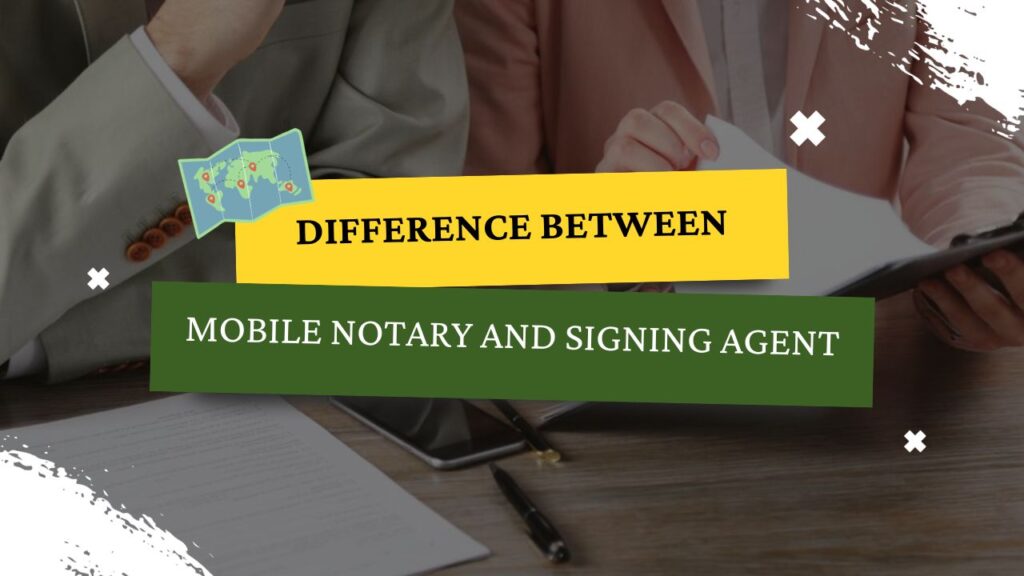What’s the difference between a mobile notary and a mobile signing agent? Both provide convenient services by meeting clients where they are to notarize documents or witness signatures, but their roles differ.
Mobile notaries are commissioned public officers who officially verify signers’ identities and witness them signing papers, whereas mobile signing agents solely observe signatures and paperwork completion.
With a mobile notary, you get an impartial verification of who can refuse service; a signing agent solely ensures documents are signed.
Understanding these nuances between “Mobile Notary vs. Mobile Signing Agent” ensures you get the right professional for your signing needs.
What is a Mobile Notary?

A mobile notary is a notary public who travels to you, rather than you having to go to them. They can help you with a variety of legal documents, including birth certificate authentication, wills, power of attorney, and more. You may also like: how to choose write notary
Key Points:
- A mobile notary is a notary public who travels to you.
- They can help you with a variety of legal documents.
What are the Requirements to Become a Mobile Notary?
The requirements to become a mobile notary vary by state, but in general, you’ll need to meet the following requirements:
- Be at least 18 years of age
- Be a legal resident of the state in which you’re applying to become a notary
- Complete a notary training course (if required by your state)
- Pass a notary exam (if required by your state)
- Obtain a surety bond (if required by your state)
- Obtain errors and omissions insurance (if required by your state)
What is a Signing Agent?

A mobile signing agent is like a mobile notary, but they specialize in loan signing appointments. They are responsible for verifying the identity of borrowers and witnessing the signing of loan documents.
Key points:
- A mobile signing agent specializes in loan signing appointments.
- They are responsible for verifying the identity of borrowers.
What is the Difference Between a Notary Public and a Registered Agent?
While a notary public and a registered agent may sound similar, they serve very different purposes. A notary public is a public official who is authorized to witness and certify the signing of legal documents. A registered agent, on the other hand, is a person or company that is designated to receive legal documents on behalf of a business entity.
Mobile Notary vs. Mobile Signing Agent Fees

The fees for mobile notary and mobile signing agent services can vary depending on the state, the type of document, and the distance traveled. Service fees can vary widely within the industry.
Benefits of Using Mobile Notary Services
There are several benefits to using mobile notary services. First and foremost, they can save you time and hassle by traveling to you, rather than you having to go to them. They are also convenient for people with busy schedules or mobility issues. Additionally, mobile notaries can provide a level of privacy and security that you may not get at a traditional notary office.
Notary Services You Can Trust!
When it comes to legal documents like birth certificates, it’s important to work with a notary service that you can trust. Look for a service that is licensed and insured and has a good reputation in your community. You can also ask for references or read online reviews to get a sense of their level of professionalism and customer service.
What are Mobile Notary Loan Signing Appointments Like?
If you need to have your birth certificate authenticated for a loan or mortgage, you may need to attend a mobile notary loan signing appointment. These appointments typically take place in the borrower’s home or office and involve the notary verifying the borrower’s identity and witnessing the signing of the loan documents.
How Do You Get Mobile Notary Signings?
If you’re interested in becoming a mobile notary, there are several steps you’ll need to take. First, you’ll need to become a notary public in your state. You’ll also need to obtain a bond and insurance and register with signing services and title companies to find work.
What Makes a Successful Mobile Notary?
To be a successful mobile notary, you’ll need to have excellent communication skills, attention to detail, and the ability to work independently. You should also be reliable, professional, and able to provide excellent customer service.
To Wrap Up
In conclusion, while both notary publics and signing agents deal with legal documents, they are two different professions with different purposes. If you need to verify legal documents, consider working with a mobile notary or signing agent to save time and hassle. Just make sure to do your research and work with a service you can trust.


